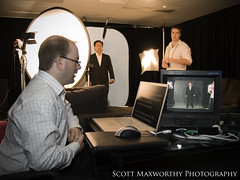Mary Aloe ? Prouducer Mary Aloe Proud Mary Entertainment
Page : 1 2 3 4 5 6 7 8 9 10 11 12 13ALL
Mary Aloe ? Prouducer Mary Aloe Proud Mary Entertainment
It’s around 6 p.m., and film producer Mary Aloe and I are sitting on a leather couch in the dimly lit bar at Toronto’s Sutton Place Hotel. It’s hard toignore the cacophonous sound of over 60 people crowded into this narrow establishment all talking at once, but the noise only adds to the excitement of this particular week during September’s Toronto International Film Festival. And while journalists and movie fanatics alike can sit back and immerse themselves in the temporarily transplanted Hollywood magic, producers like Mary Aloe have a lot resting on the reception of their films, many of which will have their world premieres at the festival.
Aside from around-the-clock meetings with distributors and parties with guest lists tighter than Mariah Carey’s tube tops, Mary Aloe’s main reason for being here was to attend the gala premiere of her latest
project, Battle in Seattle. The film, about the late-’90s riots in the West Coast city, stars Charlize Theron and is also the directorial debut of Theron’s husband, Stuart Townsend. Such a gala can make or break a film’s eventual release depending on how it’s received by the crowd and the critics. Fortunately, when the credits rolled the film was met with a 15-minute standing ovation at the famous Elgin Theatre, and Mary Aloe, first thing the next day, was met with a flood of phone calls from distributors making offers. As I peruse the wine menu, Mary Aloe orders herself a glass of sparkling water. She has a business dinner to go to after this and prefers to start the evening off on a light note. I ask her what a film producer’s job entails and why it’s such a boys’ club. “Here’s the thing…” says Mary Aloe, and we begin to really talk.
How come I don’t know any
producers or know what a producer does?
It’s funny, even if you’re Kennedy/Marshall, a lot of people don’t know who any of these producers are – unless you go up to win that Oscar. And they still don’t remember your name! Like, do you remember the name of the producer who produced Crash? We’re the unsung heroes.
So you get the big Oscar at the end of the Academy Awards then?
You get the big one, the last one, the Best Picture. Whether it’s the studio or the independent world, we all aspire to be recognized by our peers and have them say, “You did the best job. You’re at the top of the best and everybody really respects you for what you did.” I had a great feeling in Toronto the other night [at the premiere of Battle in Seattle]. We had a lot of interest [from distributors], and we had four offers. But the standing ovation at the end for 15 minutes –
it’s just as exciting as seeing Stuart Townsend crying and Charlize crying for a story, and everybody hugging and kissing after a year of work putting this together.
Why did you get behind this particular movie, and do you ever kick yourself for not producing others?
I had that with Crash and Capote. Nobody wanted to read Capote because nobody wants to read about a gay writer, and I was like, “You’re wrong!” And I knew I was right and I had those two scripts. I didn’t have the finances that I have now, but I knew I had good taste! This script [for Battle in Seattle] was given to me, and I saw the potential. It was also based on true events. In 1999 there were riots that turned an American city into a world war zone for literally five days, and it’s very unusual in America, and the issues behind this riot happened. [The script] gave everybody’s view: the
pedestrians, the protesters, the policemen.
What does it mean to be an independent filmmaker?
In the independent world, I go out and raise the money to buy the project. I go to Chicago, New York. I’ll meet with a dairy farmer, I’ll meet with a huge real estate magnate, I’ll meet with the owner of a name brand clothing store. These are all money people who want to give their money to movies. I’m going to New York on Friday to explain projects to them. Right now, I have seven pictures that they’re making money off of, that have A-list stars that everybody loves – Kate Bosworth, Ewan McGregor. I did six movies – produced and financed – in about 20 months.
Let’s say you lose money. What happens to the investors at that point?
It’s very hard to lose money on a film, at least in new films. There’s so many lives of the movie, from the theatrical and
then you have the DVD and then you have the airplane, and you have the hotel, then you have HBO, Showtime… so there’s so many shelf lives. I know that they’re going to get their money back. How does it feel to be in an industry dominated by males? I’ve always felt that I actually have a leg up. Let’s put it this way: I present myself pretty well, and when I walk into a boardroom, I always sit at the head of the table because I’m generally the only woman. I purposely take
the head seat at each table and sit there because I believe I have the same strength and negotiating abilities as any gentleman in this room, in a bar, in the hub of the Toronto Film Festival, which is one of the most prestigious festivals in the world right now. I learned to play chess with my dad before he passed on, when I was a little girl, and he always said, “Mary, this is a game of life. I’m
going to teach you chess.” I took it as being methodi – cal. I always think about the meeting, how it’s going to go, who I’m going to bemeeting with, the story and how I’m going to sell it. I tailor it to different companies. I know what their trigger is, their financial trigger, their creative trigger. I go up against the best of the boys. The interesting thing about that metaphor is that – in chess the king’s moves are very predictable, but it’s the queen who can do anything and come out of nowhere and win the game. I love that! I’d like to use it for my bio. You mentioned at the photo shoot that sometimes you have to drop stars like Lindsay Lohan when they get in trouble. I call it stars gone wild, when you see stars go up and down, whether it’s the Robert Downeys or the Lindsay Lohans or Paris Hilton. They go, “Oh, I don’t care about production! I’m just going to go
out and do what I need to do.” It’s really hard on all of us, because as a producer you have to watch all the budgets. One of the reasons why I think I’m still success – and will continue to be, is because I don’t just think about me but about every single one of those people on the set. When stars do that, they can make the insurance go up, so the budget changes – they change our schedule. I can’t tell you what it was like, what a bumpy ride over the summer, with this particular production, with this particular star who I won’t name, because I remember the one day I woke up and I had lost a million dollars. And another day, something else happened to the star and I lost two million dollars because that star had gotten him or herself into a problem, and the investors wake up and go, “Sorry, we can’t go forward.” It’s not easy to raise money, because you’re saying, “Here’s
a piece of paper, here’s a star, let’s hope they show up.” It’s all about your vision, your dream. I hope that someone as talented as Lindsay will learn [from her mistakes], because she’s a very talented actress and I can’t say I wouldn’t work with her again, because I probably would.
How did you get into producing? You were a journalist
before, right?
I did exactly what you are doing and I did it for a US publication. I was interviewing stars, from their bedrooms to the bathrooms to the restau – rants to backstage, and I really loved it, and then I moved into publicity. Then I started getting all the people I represented on talk shows. Instead of just getting the guest on, I’d write the whole show so my guest would get on. By the end of that year, I was at a publishing firm – self-help books – and I had three offers to produce talk shows: Montel
Williams, Geraldo and John Tesh from Entertainment Tonight, so I went with Geraldo. It was a great experience. What it did was give me a resource for amazing reallife stories all over the country. And that’s when I started to do TV movies. Your IMDB profile is insane! You’ve got, like, seven movies scheduled for the next year. The past two years have been crazy! I had a TV show I did with Ashton Kutcher for MTV called Room 401, which was at the same time I was doing a movie with Laurence Fishburne, and I was doing the Shirley MacLaine and Olympia Dukakis movie in LA all at once. I woke up one day complaining, and then I was like, “What the hell? I did it! Do you remember when you couldn’t get anything in development?” So, if I start to complain that I get too tired or I have too much going on, I just remember when I couldn’t get a lot of stuff going. I’m very grateful for
everything. Are you nervous about the wide-release reception of Battle in Seattle? Well, I went to the InStyle party with Jude Law, Jessica Alba and Amber Tamblyn [the other night]. It was a really good party. I saw Harvey Weinstein. I’m always one for confronting my fears, so I walked right up to him and said, “Harvey, I understand you watched my movie, Battle in Seattle.” He goes to shake my hand like this [Aloe demonstrates] and says, “I just want to tell you I loved that movie, and by the way, it’s important, too.”
What kind of projects do you have in the works?
I’m making offers to Fergie for a movie, and I’m making offers to Eva Green from Casino Royale for another film. It’s really cool. Then I just pounced on a million fund backed by Merrill Lynch. It’s nice, because now I have equity funds to make movies.
Do you ever think you’re taking a
gamble when you make certain films?
I’m not a gambler, but I’m a risk-taker, and there’s a difference. A gambler is, to me, somebody that just throws it. A risk-taker is a maverick, someone like me, like you. I’m taking risks because I’m betting on myself and the people around me, so to me it’s a sure bet, a sure thing. Do I take risks? Absolutely, I’m the boss. But do I gamble? Not with other people’s money, not with other people’s lives, not with the crew, not with anybody.
Official Sites:
HTML clipboard
href=”http://www.itbaymarketing.com”>http://www.easyinboxmailer.com
http://www.articlesbd.com
Article from articlesbase.com
Related How To Sell A Film Script Articles

